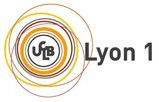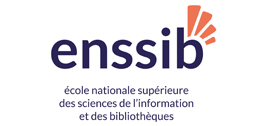Language science and network science (what motivates a linguist to work with DANTE)
| Quand ? |
Le 27/04/2016, de 10:30 à 11:30 |
|---|---|
| Où ? | ENS de Lyon, Site Jacques Monod, Salle 116 |
| Participants |
APRIL 27, at 10:30 am, room 116 from Jean-Pierre Chevrot, Invited Researcher, who will introduce him and his works, so we are expecting to see everyone ! ———————————— Title: Language science and network science (what motivates a linguist to work with DANTE) Speaker : Jean-Pierre Chevrot, - Invited researcher (délégation) at DANTE, LIP, ENS Lyon - Lidilem, Université Grenoble Alpes Summary: Language science studies language and languages by taking three perspectives, according to whether one focuses on language as an abstract structure, language as a social practice, or language as a cognitive device. This field of research currently faces two challenges: 1/ to address the complexity of language by elaborating models integrating its abstract, social and cognitive sides, at the collective and individual levels; 2/ to collect and process large data sets. We suggest that an alliance with network science allows linguistics to meet these challenges, while offering network science the opportunity to build and check models of dynamic networks, in which the structure is changing and influenced by the circulating content. Moreover this alliance may produce results that make sense both for social science and network science and that contribute to solve social problems. We will illustrate this interdisciplinary work in two steps: 1/ by summarizing the main results of the study on language and social network in the research tradition of language science; 2/ by presenting DyLNeT (Language Dynamics, Linguistic Learning, and Sociability at Preschool: Benefits of Wireless Proximity Sensors in Collecting Big Data; head of the project: Aurelie Nardy, UGA), a project that scales up previous studies by using the tools (proximity sensors, algorithm of community detection, and modeling) elaborated in the field of network science. |
| Ajouter un événement au calendrier |
|
Summary: Language science studies language and languages by taking three perspectives, according to whether one focuses on language as an abstract structure, language as a social practice, or language as a cognitive device. This field of research currently faces two challenges:
- to address the complexity of language by elaborating models integrating its abstract, social and cognitive sides, at the collective and individual levels;
- to collect and process large data sets.
We suggest that an alliance with network science allows linguistics to meet these challenges, while offering network science the opportunity to build and check models of dynamic networks, in which the structure is changing and influenced by the circulating content. Moreover this alliance may produce results that make sense both for social science and network science and that contribute to solve social problems.
We will illustrate this interdisciplinary work in two steps:
- by summarizing the main results of the study on language and social network in the research tradition of language science;
- by presenting DyLNeT (Language Dynamics, Linguistic Learning, and Sociability at Preschool: Benefits of Wireless Proximity Sensors in Collecting Big Data; head of the project: Aurelie Nardy, UGA), a project that scales up previous studies by using the tools (proximity sensors, algorithm of community detection, and modeling) elaborated in the field of network science.










